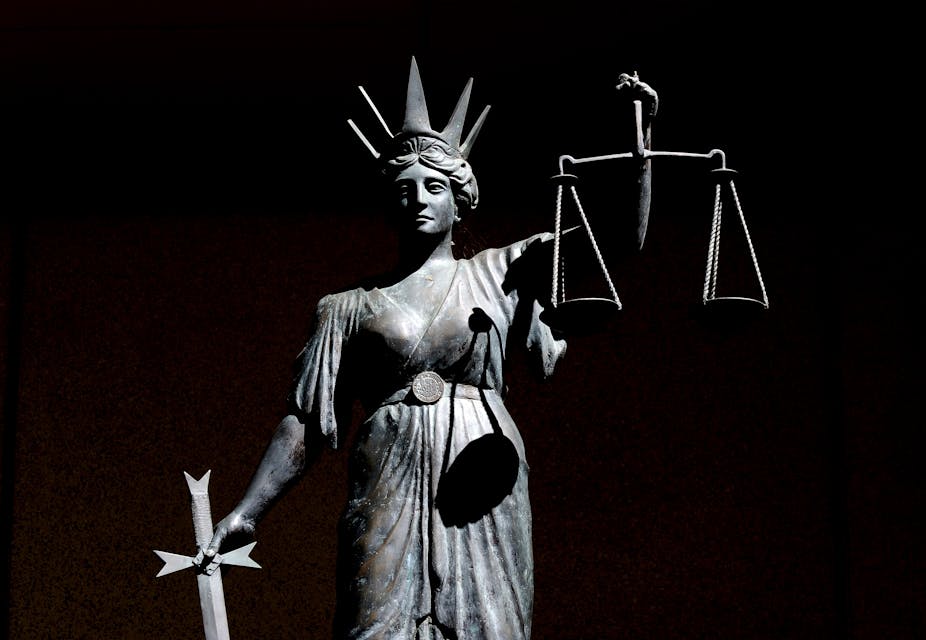Prime Minister Julia Gillard has announced a royal commission into child abuse in churches, schools and foster homes.
The inquiry will include, but not be limited to, allegations of abuse in the Catholic Church. Opposition leader Tony Abbott has backed the move after insisting any such inquiry could not focus on only one institution, like the Church.
Announcing the inquiry, Gillard said:
These are insidious, evil acts to which no child should be subject. The individuals concerned deserve the most thorough of investigations into the wrongs that have been committed against them. They deserve to have their voices heard and their claims investigated. I believe a Royal Commission is the best way to do this.
But what are royal commissions, and is establishing one the best way of dealing with an issue of the magnitude of clergy-related abuse?
Royal commission are a type of “public inquiry”. Public inquiries are temporary ad hoc bodies appointed by executive government to provide advice or to investigate some issue; whose members are drawn from outside government; have public processes; seek community input and release their reports.
This excludes: parliamentary committees; permanent government advisory bodies; internal government reports; and inquiries initiated by government bodies such as ombudsmen, anti-corruption bodies and departments.
What distinguishes royal commissions from most other public inquiries is that they are established under specific legislation that confers specific powers of investigation on them. At the Commonwealth levels that legislation is the Royal Commission Act 1902. It was one of the first pieces of legislation introduced in federal parliament by then Attorney General, later Prime Minister, Alfred Deakin. Royal commissions had been appointed by the states prior to federation.
Importantly, Australian royal commissions at both state and Commonwealth levels, unlike their UK counterparts until recently, have always been appointed under legislation.
Such legislation conferred wide ranging coercive powers of investigation on these royal commissions (e.g. abilities to call and cross-examine witnesses, obtain evidence, rights of entry, phone-tapping) while also providing protection to witnesses and inquiry members from legal action such as defamation.
Not all inquiries appointed under this legislation are called royal commissions – sometimes just commission of inquiry. However, the “royal” connotes the issuing of letter patent from the Crown or the Crown’s representative and the recent 2009 Australian Law Reform Commission review of the Commonwealth Act believed that for reasons of status and perceptions of independence, the “royal” should continue to be used.
Royal commissions can be inquisitorial/investigatory appointed to investigate allegations of impropriety and maladministration or some catastrophic event (e.g. flood, bushfire or accident). Inquisitorial inquiries focus on finding the “truth” about an allegation or incident and are therefore inquisitorial by nature and process. This is where their powers of investigation are most used.
Or royal commissions can provide advice, information, research and options to governments about a particular policy problem. There have been royal commission on television, grain handling, health systems and welfare issues to name just a few.
These days royal commissions and commissions of inquiry appointed are mostly of the inquisitorial type. Of the 38 royal commissions appointed by the Commonwealth since 1979, only three have been of the policy type. The same trend can be seen around the states.
Since federation there have been 128 royal commissions appointed at the Commonwealth level. They reached their peak during 1910-1929 when 54 were established. Subsequently, royal commission numbers declined. Twelve royal commissions were appointed from 1929-40 and only seven from 1950-1972. The election of the Whitlam Labor Commonwealth Government (1972-75) saw 13 royal commissions established. The Fraser Coalition Government (1975-83) appointed eight royal commissions and the Hawke-Keating Labor governments (1983-1996) 12. The Howard Coalition Commonwealth Government (1996-2007) established only four royal commissions. The Rudd and Gillard governments have eschewed establishing any royal commissions.
Around the states during the 1980s and 1990s there was a spate of royal commissions into corruption and maladministration (banks, WA Inc, police). These did great damage to incumbent governments and have made all governments less enthusiastic about their use.
The end of the road?
Nevertheless, inquisitorial royal commissions remain the “institution of last resort” for governments when all other bodies are deemed unsuitable for handling issues of high political salience and sensitivity. In 2005, the Queensland Labor government appointed not one, but two royal commissions into the overseas doctors’ scandal after exhausting every alternative.
The state governments following recent major fire and flood disasters in Victoria and Queensland in 2009 and 2011 appointed commissions of inquiry to investigate the causes of disasters and to advise on post-disaster management.
There are concerns about the powers of royal commissions, the lack of review of their processes and findings and their increasing costs.
The Gillard government has yet to respond to the ALRC review of the Commonwealth act that was submitted in 2009 where these issues were canvassed.

